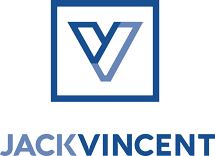I was helping a client recruit a sales support person this week.
The desired profile would be a recent college graduate with some, but not necessary a lot, of experience in a commercial environment.
My client had placed an ad in a university community bulletin board and had received the expected number of CV’s, which we pared down to about ten candidates. We then held first interviews of no more than 30 minutes with each candidate… all in one day.
At day’s end, one guy stood out from the rest.
Head and shoulders above the rest. So much so, that my client is thinking of increasing the job description and making an offer to this candidate ASAP.
While I’ve told my client not to go too fast, I totally agreed that they should not let this guy get away.
What made him such a strong candidate?
The way he sold himself to us. He sold himself by being genuinely curious about my client’s business. He was a consultative salesperson.
He let us feel as though we were in control. When we asked him a question, he would answer with a generous amount of information, but too much either, and he would check that it was clear.
And then he would also ask us questions. Good questions. Not wasteful questions in which we had to educate him to the product line, the industry. No, he had done his homework on that (and tactfully left his notes open revealing print-outs of not just my client’s website, but other key things in the industry).
No, his questions showed curiosity about the big business issues, and focused on my client’s challenges. He listened intently, with good eye contact, taking occasional notes, and not afraid to ask for clarification occasionally.
He had three or four short stories, case studies of sorts, of similar things he had worked on based on what he had heard from my client. Most of his case studies were successful, but when prompted, he was not coy about one failure he had had and what he had learned from it.
I could see my client trusting this young guy more and more as the meeting, er, interview progressed. In fact, we had to cut it off at 45 minutes, because the next candidate was waiting… and might as well still be waiting.
This guy was a tough act to follow.
Interview Tips:
- Research. No, you can’t find out everything by a website or even other people in the industry, but find out as much as you can.
- Find Critical Issues. Don’t just print out the website home page, but see if you can find potential burning issues – a competitor who’s come in to the territory, a new technology that’s a game changer… or even opportunities that are challenges for the company to exploit.
- Prepare. Sure, your interviewer is going to want to learn about you. Prepare some good stories and be ready to handle hard questions like, “What was your biggest failure?” (Hint: Also prepare, “… and this is what I learned from it.”) But also prepare good questions that address the company’s potential challenges. Put them on a one-page meeting plan sheet.
- Open Confidently. You must make the interviewer(s) comfortable. It’s ok to be a little nervous; they’ll actually see that you care. But if they have to wonder how they can approach you with burning business issues once you’re hired, you probably won’t be hired. So all the tools of good eye contact, a smile and eye contact really do matter. Be seen as friendly and professional right from the start. (And dress professionally, too. You’re not going to class, you’re going to somebody’s business!)
- Be Ready to Break The Ice. What will you say if the first five seconds are awkwardly quiet? That might be your interviewers fault, but it impacts you. Remember the “open professionally” thing? This is an extension. Know what you’re going to say early in the meeting if your interviewer doesn’t handle it well… or wants to test you. “Thanks for asking me in. I appreciate the time you’re taking to learn about me, and at some point, I’d like to ask a few questions about your business, too.”
- Don’t Ask About Money. Or benefits. Or holiday benefits. This is a first interview.
- Answer Questions Generously. Be ready to go in to each area of your work history. Not too much detail, but enough so that it doesn’t seem like you’re trying to hide something. When you’ve talked about the work, be ready to add, yes, “… and what I took away from that was…”
- Ask Questions. This is probably the biggest area to impress clients, and show you really care about this potential job/employer. Do some research on consultative selling, and ask “business issue” types of questions, and then try to link appropriate aspects of your work history or character to how you have approached something in the past.
- Next Steps. Don’t be afraid to ask about next steps at the conclusion of your interview. If the answers are not clear, suggest something.
- Follow-Up. Yes, no later than the next morning. The question is still open about whether you should do this by post or by email. Post is special, but it’s slow. Certainly follow-up with an email the next day, and link key areas of the interview to how you look forward to addressing them should you get the position.
The big picture here is, the best way to impress them is to show you really care about them. You can mention that the job excites you, but link that to why you’ll do a good job of taking care of them. That’s consultative selling, and that’s successful job interviewing.
Happy selling!

